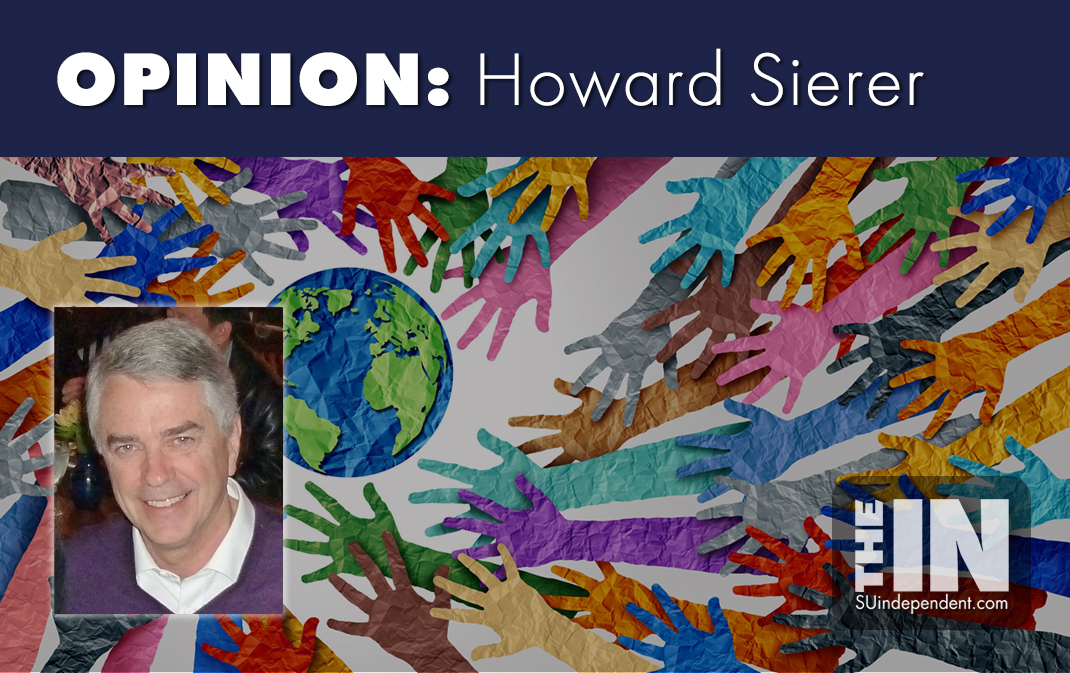
Conflicting Visions of “Social Justice”
– By Howard Sierer –
Aren’t we all in favor of social justice, whatever that means? And that’s just the problem: conflicting visions of what it means.
Thomas Sowell’s latest book “Social Justice Fallacies” – an instant New York Times bestseller – adds another jewel to his crown as a widely-respected observer of social theory and intellectual history. Sowell explains that for centuries, ideological disputes have raged about freedom, justice, equality, and power. Conflicting visions arise from the implicit assumptions that we all bring to these issues.
On the one hand, Jean-Jacques Rousseau is often cited as the inspiration for Thomas Jefferson’s “all men are created equal” phrase in our Declaration of Independence. Rousseau contrasted “the equality which nature established among men and the inequality which they have instituted among themselves.”
His vision of equality animates today’s political liberals who advocate policies and programs that they believe will allow society’s disadvantaged citizens to “equalize” their standing with the rest of us. Liberals tend to see any disparity of outcomes as evidence of societal failures that should be corrected with government action.
In contrast, social conservatives see mortals as inherently different, with varying attributes and flaws. This vision was described by Edmund Burke, who wrote that “we cannot change the nature of things and of men—but must act upon them as best we can.” Likewise, Immanuel Kant said that “from the crooked timber of humanity, no truly straight thing can ever be made.” Both Burke and Kant believed that we should be realistic about mortal limitations and work with what we have rather than trying to impose a single idealistic vision on the world.
Both liberals and conservatives agree that all citizens should be “equal” in their rights to freedom and opportunity. But even Rousseau argued that “it would be wrong to expect, even to desire equality in civil society.” Sowell agrees, saying the central fallacy of today’s social-justice advocacy is “the assumption that disparities are strange and that in the normal course of events, we would expect people to be pretty much randomly distributed in various occupations, income levels, institutions, and so forth.”
Sowell writes, “In the kind of world envisioned by Rousseau, all classes, races and other subdivisions of the human species would have equal chances in all endeavors—other things being equal.” Yet it is precisely those pesky “other things” that are crucial for making any calculation about the existence of inequality.
“Among the many factors that can prevent equal human potentialities from producing equally developed capabilities are factors over which humans have very little control—such as geography—and other factors over which humans have no control at all, such as the past.”
He goes on: “We can read reams of social justice literature without encountering a single example of proportional representation of different groups in endeavors open to competition—in any country in the world today or at any time over thousands of years of recorded history.”
Sowell acknowledges that exploitation and discrimination exist and contribute to disparate outcomes. But he notes that “these vices are in fact among many influences that prevent different groups of people—whether classes, races or nations—from having equal, or even comparable, outcomes in economic terms or other terms.”
Equality of group outcomes is something never seen all over the world and down through history. Yet as Sowell sees progressives, “There’s this sort of mysticism that disparities must show that someone has done something wrong” to any lagging group. He says that this progressive vision of social justice “starts off by reducing the search for causation to a search for blame. And for so much of what happens, there is no blame.”
Sowell provides a variety of examples of where facts don’t support progressive social justice blame narratives. For example, liberals argue that higher black poverty rates are mainly a product of slavery, Jim Crow, and lingering “systemic racism.” He responds that black behavioral patterns play a bigger role in racial disparities than racism does.
Backing that claim with facts, he notes that black married couples have had poverty rates in the single digits for more than a quarter-century. And black married couples “in which both husband and wife were college-educated earned slightly more than white married couples where both husband and wife were college-educated. If black family poverty is caused by ‘systemic racism,’ do racists make an exception for blacks who are married? Do racists either know or care whether blacks are married?”
A second example: today’s epidemic of black single mothers is not due to the legacy of slavery or to systemic racism. He explains that “for more than a hundred years after the end of slavery, most black children were born to women who were married, and the children were raised in two-parent homes.”
He says that there are pockets of the U.S. populated almost exclusively by white people who experience no racism and who nevertheless earn significantly less than blacks. He also notes that the poverty rate for white, female-headed, single-parent families is more than double the poverty rate of black married-couple families.
To those who might argue that what Sowell calls black behavioral patterns are themselves legacies of slavery, he notes that “in England, the underclass is predominantly white, but it shows many social patterns very similar to the social patterns of low-income blacks in the United States, even though the English underclass has no ‘legacy of slavery’ to be used as an automatic explanation.”
In one of his most pungent observations, Sowell says, “Someone once said that people on the political left think that they would do what God would do if he were as well-informed as they are.” He responds with an observation made by the late Senator Daniel Patrick Moynihan: “You’re entitled to your own opinion, but you’re not entitled to your own facts.”



